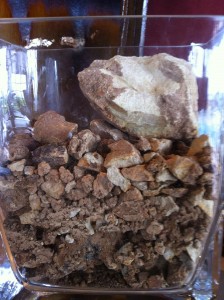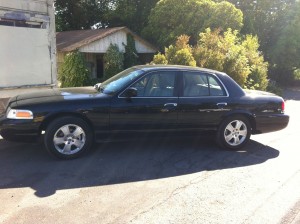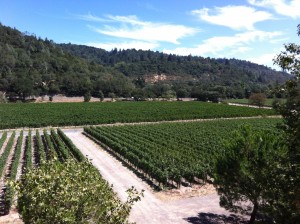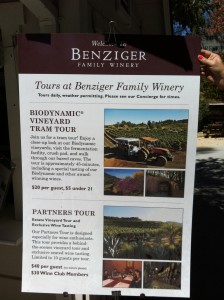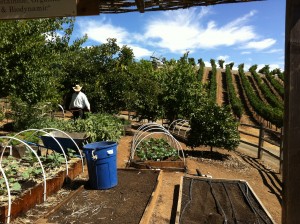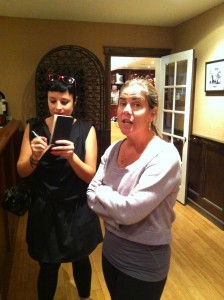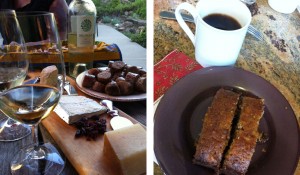#OnTheWineRoad #California- Hotel California from Wine Defender TV on Vimeo.
We did it!! Onne and I got enough sponsorship together to make it out to California and live our great wine adventure!!!! The weather was great, the scenery gorgeous and we we had a stellar line up of appointments and wines to taste! And this is all thanks to you!!! So once again THANK YOU to all the people that have sponsored and helped us to realize this #onthewineroad dream!!! So Lisa Weeks, Andre Riberhino, Matt Wilson, Cori Page, Mariella Beukers, Gabriella Curin, Simon Woolf, Elisabeth Gtzar, Elisabeth Seifert, Roger Kolbu, Mary Morrison, Julian Horvath, Amaya Guelbenzu, Denise Medrano, Stephen McEleney, CJ Brown, Yoshi Katzuko, Joe Bercera, Melanie and Benoit Tarlant, Gregoire Japiot, Thomas Lavin, Paul Colley, Frederic Henry, Justine Ryan, Maria Margarita Uralde Garcia, Gabriel Dvoskin, Luiz Alberto, Audrey Domenach, Shula Melamed, Thomas Lippert, Ward de Muynck, Marco Cecchini, Maria Godoy, Kevin Jacklin, Antonio Metz, Ana Laura Solis, Jerome Legras, Ros MacKenzie, Maria Dapontes-Dougherty, Russell Curtis, Lisa Augustine, Bob and Debbie Broman, Valerie Brockbanck and Molly Horvaka – YOU TOTALLY ROCK!!! THANK YOU VERY MUCH!!! We totally appreciate your kindness and we will return the favour one day!!!!
We started our trip on the 20th August in the Willamette Valley in Oregon were we made a blitz visit to Lenné Estate, a very small Pinot Noir producer in Yamhill. We tasted with the owner Steve Lutz, who told us his story in the beautiful tasting room. Lenné Estate was established in 2000 when Karen and Steve Lutz purchased a 21 acres block and planted a 15 acres Pint Noir vineyard in the very poor soil on the south facing slope. Farming the block has not been easy, but then beautiful wine is seldom made in an easy way. The vineyard is planted and according to European high density principle and the 2100 vines per acre are dry farmed – without use of irrigation to encourage deeper roots to give a better terroir expression. Like many a small winery in Oregon (and Burgundy :-)) Steve focuses on farming sustainable and has been working the poor marine sediment soil in his vineyard rather than all the paperwork needed for the certification. All blocks and clones are vinified separately to preserve terroir and clone specific characteristics and the best barrels from certain blocks are bottled and commercialized as single block/single clone wines. I really enjoyed the Pinot Noir Blanc 2011 and the single vineyard, single clone Karen’s Pommard Lenne Estate 2009, but to be honest all Lenne Estate wines were very elegant and complex! From Yamhill we rushed back to Portland where we boarded the Amtrak direction California. The train pulled into Sacramento very early on Tuesday morning and after 17 hours of no wifi, Onne and I were mega excited to see a Starbucks next to the station. We got our internet and caffeine kick, cleaned up in the very large restrooms and headed out to the airport to pick up our wheels for the trip – a Ford Crown Victoria. We had asked for the “special” and we sure got a whole lot of car for our money!! We had the impression that we were driving a mini lounge around – the car was huge with seats which felt like sofa’s and really thick carpet at our feet ;-) We headed out to Napa where we first visited Quintessa. The place is gorgeous, very modern and sleek and our first Napa wines were 4 vintages of their Bordeaux blend and a sauvignon blanc. The sauvignon was elegant and balanced with a great mouthfeel and good acidity and made us pay attention to this variety in Napa/Sonoma. I found it very interesting to compare several vintages of the Quintessa flagship wine, a Bordeaux blend as it allowed us to evaluate how the wines age as well as notice some significant vintage differences. The wines were all pretty bold, maybe a little too Parkeresque for my taste, but definitely very well made and approachable even at a younger age. I have read that Quintessa farms biodynamically and there definitely was a freshness present in all wines, but unfortunately we did not hear anything about these farming methods in our tasting. We continued our biodynamic theme in the afternoon at Benzinger where we enjoyed a wonderful biodynamic vineyard tour on an electrical train. We learned all about the specific Benzinger terroir, the way of farming and conversion to biodynamics, and the huge effort the winery puts into sustainability as a whole. The 85 acres Benzinger farm in Glen Ellen, Sonoma County, only has 35 acres planted in vines and accounts for 10% of the total Benzinger production. The vineyards are planted on the slopes of a 360° volcanic caldera, stimulating varied polyphenol development and different flavour patterns in the grapes. More than 30 distinctive “flavour” sites have been differentiated on the Benzinger estate and to preserve this diversity the grapes are (hand) picked and vinified separately. They are blended at a later stage into one of the 6 Estate wines in a way which truly reflects the vintage and the terroir. On the flat of the caldera, there are several organic gardens planted which acts as natural bug farms. The family also farms cattle and sheep who all add to farm’s ecosystem and the sheep are also used for grazing in between the vines in winter. The family believes in a “natural” environment made up by plant diversity and a healthy living soil and has not used any pesticides for more than a decade now.They only purchase certified sustainable grapes and are actively looking to increase the percentage of organic and biodynamically grown grapes among their growers. This is why the family will pay 20% more for biodynamically grown and 10% more for organically grown grapes and offer help and advice to growers who are taking up the organic or biodynamic certification.
Whilst there is no doubt that the family is committed to the environment their main reason to convert to biodynamic farming was to improve the quality of their wines. Cathy Benziger explained how her brother Mike felt that sustainable, organic and biodynamic grape growing has allowed them to go beyond the variety to express the terroir and make purer and more intense wines. She also feel strongly about the certification, as it’s a program with guidelines, checks and balances which are 3rd party audited.
The conversion to biodynamic farmer and their general “greener approach” has also helped to set the family apart and has provided with a point of difference. This in turn has allowed them to continue to grow as a family business. Benzinger is one of the few remaining 100% family owned wineries in the region and the family is actively involved in all parts of the vine growing, wine making and wine marketing process.
We were treated like royalty and learned tons from Bob who has been a winemaker in the region for the last 39 years and who willingly shared his knowledge on the different AVA’s and their micro climates. For me our 3 night stay at the Broman’s residence was definitely one of the most educational and fun times of our California #onthewineroad experience!!!

